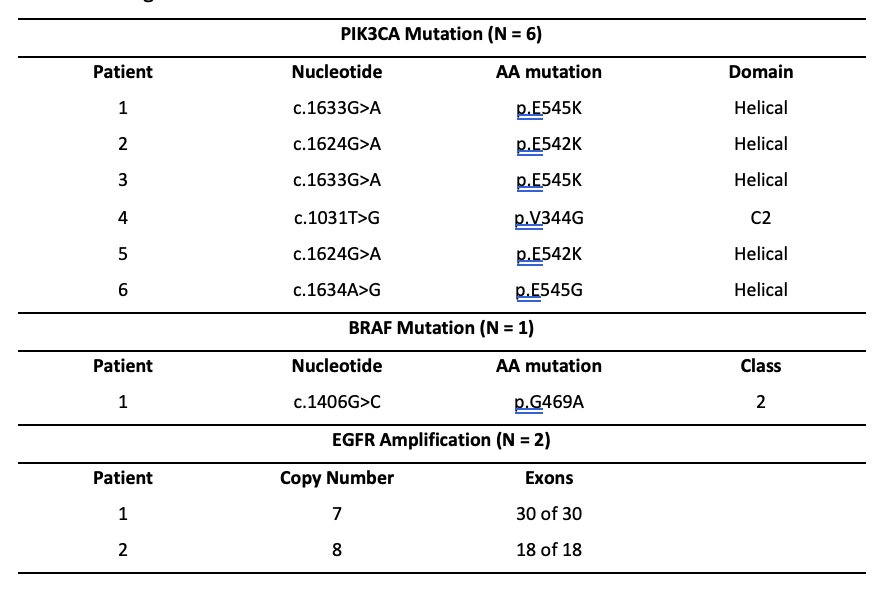The prognosis in metastatic disease (mPSCC) is dismal with less than 5% of the patients alive at 5 years. New systemic treatment options are an unmet need considering that, in metastatic disease, the standard systemic treatment in the last four decades has been platinum-based chemotherapy, however with limited efficacy and generally associated with limiting toxicity. Therefore, understanding molecular biology and tumor microenvironment is essential for the development of new systemic treatments. To date, previous studies that have evaluated the genomic profile of penile cancer and demonstrated potential therapeutic targets have only been carried out in patients from areas where the incidence of this neoplasm is uncommon.
In this context, in the LACOG 2018 study, a genomic profile using a validated platform of NGS (Foundation One CDX®) was performed in mPSCC patients from an endemic area (Brazil). Of the 23 patients initially identified, NGS evaluation was performed in 18 patients. NOTCH-1 alteration was the only associated with worse PFS and OS. We also demonstrated a previously unidentified molecular alteration, the CDKN2B loss. CDKN2B loss was previously identified in non-small cell lung cancer, and it is associated with worse efficacy and survival with immunotherapy alone treatment. It is important to highlight that no predictive biomarkers for immunotherapy such as MSI-H and/or TMB-H were identified in this cohort. All genomic and molecular alterations are summarized in Figure 1. Potential targetable alterations were also identified and are summarized in Table 1.
In summary, the genomic profile of mPSCC patients from an endemic area is similar to previous published data, however, the identification of molecular alteration associated to resistance to immunotherapy as well as the absence of MSI-H and TMB-H are concerns regarding the efficacy of immunotherapy alone and should be considered in future trials involving mPSCC patients.

Figure 1. Genomic Profiling of mPSCC Cohort
Table 1 – Targetable Alterations

Written by: Fernando Sabino Marques Monteiro, MD, PhD. Hospital Sírio-Libanês, Brasília, Brazil. Latin American Oncology Group (LACOG) – Genito-Urinary Tumors Section
Read the Abstract


